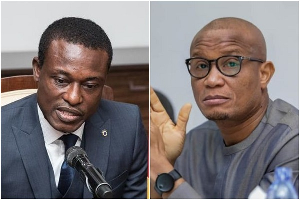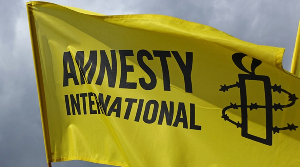General News of Friday, 22 July 2016
Source: classfmonline.com
Police can ban social media if need be – Rwanda NMC boss
Social media can be a platform used for spreading hate speech and other comments that can incite violence during the electioneering and Ghanaian authorities, if they so wish, can ban it to preserve the peace, the Executive Secretary of the Rwandan Media Commission (RMC), Emmanuel Mugisha, has said.
Ghana’s Inspector General of Police (IGP), John Kudalor, a couple of months ago hinted at banning social media on Election Day to forestall its use to foment trouble. There was public outcry against the proposal, especially from users of social media platforms, who argue that it could affect dissemination of information and also deal a serious blow to businesses which rely on social media to survive.
But the RMC boss thinks otherwise, as he believes tact should be employed to manage affairs to prevent a replication of the 1994 Rwandan genocide in Ghana.
“The police is there to preserve order and when they say they want to shut it down, it is because they have assessed the dangers that it may cause. Some time back in Uganda it happened during the election of the president, the police had to shut down social media for sometime because it considered it as the right thing to do because people were acting irresponsibly so I believe to some extent that in the interest of [the] public, the police can take action and close it (social media) down if they can,” he stated.
According to him, “It will imply that people should not be able to have a way to discuss the things that they are discussing”.
Mr Mugisha, who was a guest on Class FM’s Executive Breakfast Show on Thursday July 21, said Ghana must learn from unfortunate incidents in other countries where hate speech has resulted in the murder of thousands of people, adding: “What you sow is what you reap.”
He was quick to add that there could be alternatives to ensure a win-win situation for both sides. He suggested that Ghanaian authorities can engage the creators of social media platforms to implement measures that will filter or block specific individuals or groups identified to be propagating hate speech or activities that can lead to violence.
“At the Truth Forum, there was a Facebook group from California and the one in charge of policy revealed some options that they can offer to help manage the situation. They can work out a plan that can be used to control the situation,” he stressed.
In his country, hate speech resulted in the mass slaughter of people of the minority Tutsi ethnic groups in Rwanda by members of the Hutu tribe who were the majority in government. An estimated 800,000 Rwandans were killed during the 100-day period from April 7 to mid-July 1994, comprising as many as 70 per cent of the Tutsi and 20 per cent of Rwanda's total population.
After the Tutsi-backed Rwandan Patriotic Front (RPF) regained control of the country and ended the genocide, an estimated 2,000,000 Rwandans were displaced and became refugees, most of them Hutus. The genocide was planned by members of the core political elite, many of whom occupied positions at top levels of the national government.












